The Real Estate Housing Market has become a hot topic of debate among economists and YouTubers. You can check out this post where we looked at economists predictions back in the beginning of 2023.
OR, if you want to see what might happen in 2024, you should read this post on What You Need to Know about the 2024 Housing Market.
It’s been almost 4 years since the beginning of Covid when people really started throwing around the words real estate crash.
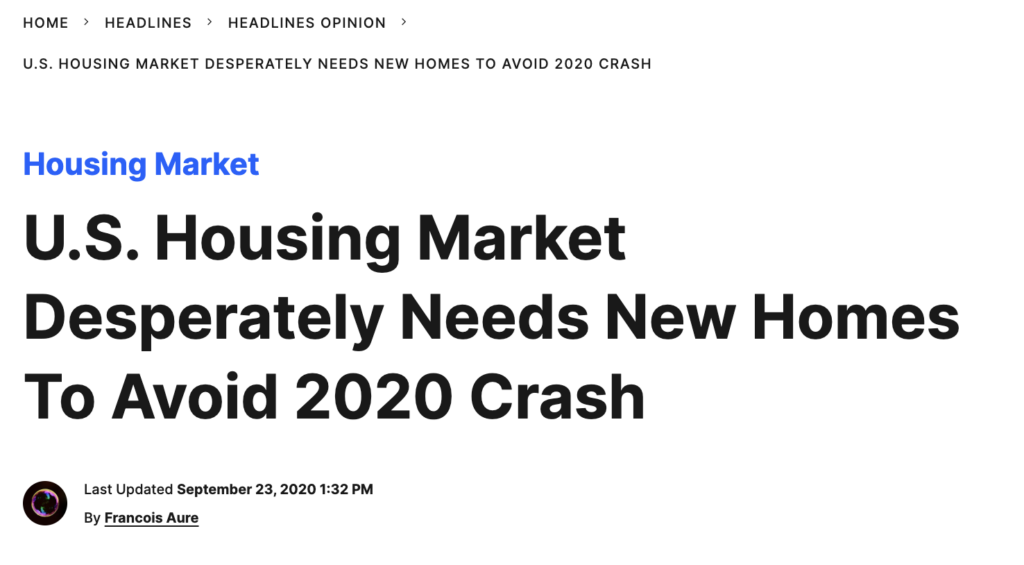
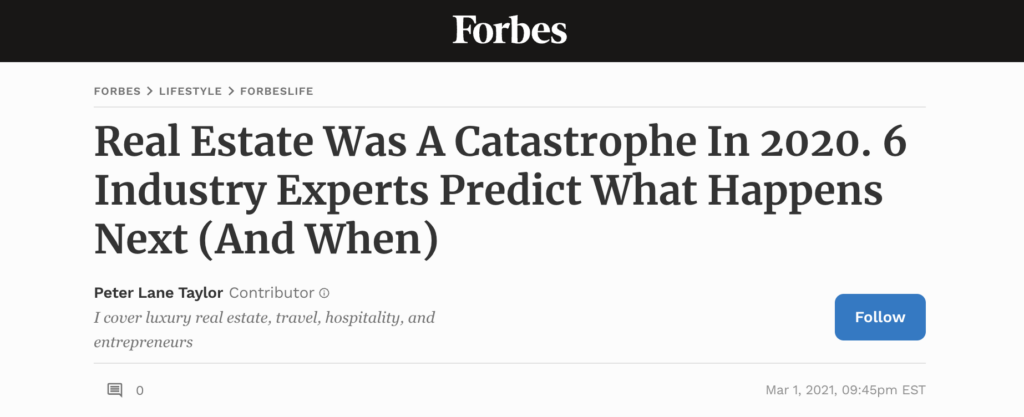

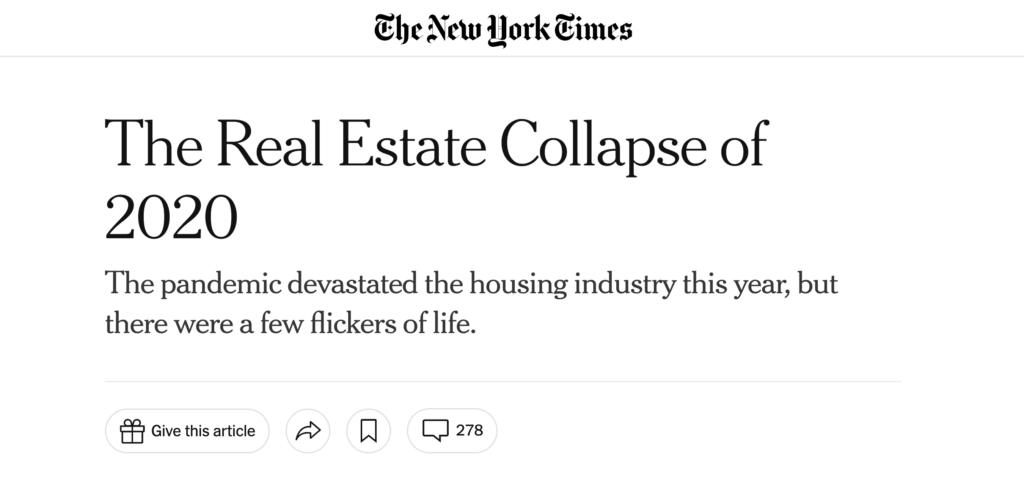
But the real estate and housing market crash still hasn’t happened.
If you’re like me and most Americans, you’re wondering why it hasn’t happened and when on earth will it?
In today’s post I’m going to show you the real reasons why the real estate market hasn’t crashed yet, and once you see why the collapse hasn’t happened, you’ll realize that we’re not done with the roller coaster yet. The things that are currently impacting the real estate market are going to be around for at least 5 more years, if not longer.
No Real Estate Crash, Reason 1: Baby Boomers & Housing!
Let’s start with the biggest news and the biggest impact in the housing market.
And that is Baby Boomers.
We thought that Covid and the lockdowns and people wanting bigger yards was the impetus for the 2020 housing frenzy. But it wasn’t the only thing happening. Between 2020 and 2030, the last group of Baby Boomers is reaching the retirement age of 65.
The number of older adults in the US are expected to increase by 18 million. There are 10,000 people that reach retirement age every day! By 2030, 1 in 5 Americans will be 65 years old and over. And this is a very important event for the housing market.
This is why.
In a Nationwide survey, 40% of retirees say they plan to relocate when they retire.
If 18 million people are reaching retirement by 2030, and 40% of them are relocating, that’s 7.2 million people who will be moving. Since 69% of baby boomers own their homes, that means about 5 million baby boomers will be buying and selling homes.

Hold on to that number because it’ll make more sense in a few minutes (when we talk about housing supply data).
So that’s one reason the market hasn’t collapsed yet, because Baby Boomers are still buying and selling homes. They don’t care about the rates. It’s great to buy when rates are high because there are fewer buyers competing for homes.
Baby boomers are less concerned about home prices decreasing for them because for most of them, this is the last home they will buy. And obviously, they don’t worry about a job loss. This is a great market for baby boomers. And there are a lot of them out there taking advantage of it.
No Housing Crash, Reason 2: Not enough Sellers in the real estate market
But the next reason the market isn’t collapsing is because while baby boomers are selling, younger people aren’t.
And because younger people aren’t selling, the inventory levels just aren’t increasing enough for prices to go down.
Why people aren’t selling
These numbers are going to blow your mind.
Anyone who bought their home before 2022 is very likely to have a mortgage payment with an interest rate below 3%. Most of them either bought while rates were in the 2% range or refinanced when they got that low.
But this is why this is important. And give me a minute to throw out a whole bunch of numbers, but I promise I’ll tie it all up in a neat little bow in just a minute.
In 2021,
- the median home price was 346,000,
- the median home size was 2200 square feet,
- and the average mortgage rate was 2.65%.
So, if someone bought a median priced home, in my area, Raleigh, North Carolina, they would have gotten that 2200 square feet for about $1700 a month. Or a lot less if they bought earlier. If they bought in 2018 and then refinanced in 2021, their payment was probably about $1100.
Now, in 2023 that median priced home is going to cost around $436,000.
The cost of housing & moving up in the real estate market
Imagine that they want to move up to a larger home.
- They need an extra bedroom and a home office space.
- They want around 3000 square feet instead of 2200.
- In 2023, the price per square foot is $225.
- So that move up home is going to cost them about $675,000.
With interest rates around 7%, and even putting 20% down, they’re going to be paying $4040 a month for that home. That’s a HUGE jump in the monthly payment!
That’s more than double their current payment.
Almost 4x more if they’ve owned the home for 5 years.
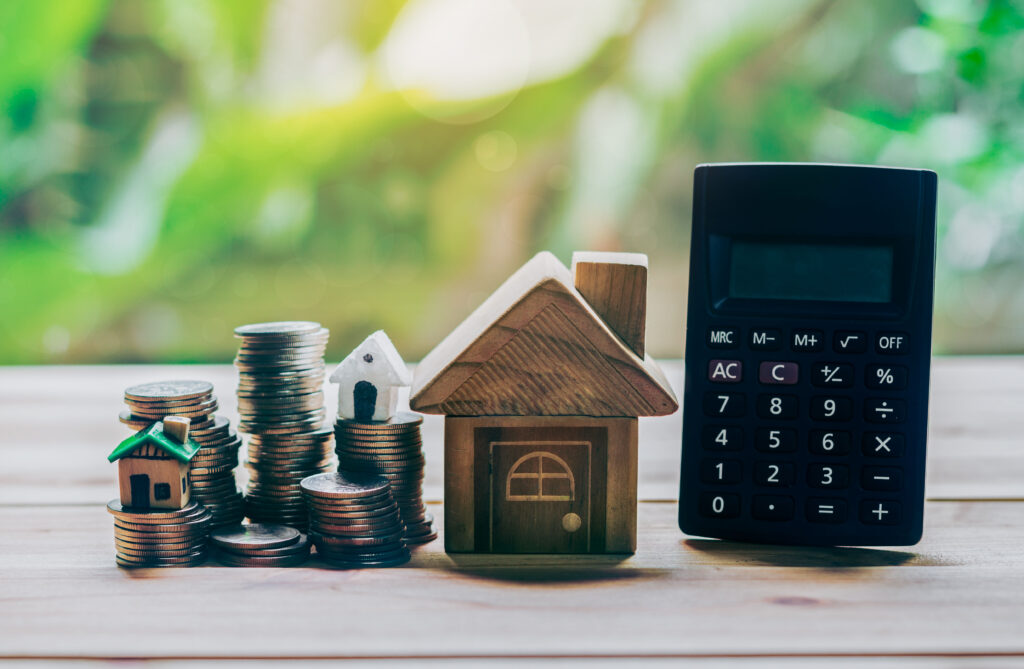
Some people are just staying put, especially if they can’t or don’t want to relocate. One of the reasons I’m still seeing a lot of people relocating is because this locked in rate phenomenon means it makes sense to move to a new state if you’re moving to a lower cost of living, or lower tax state or lower home insurance state. We’ve had several people from Florida say their insurance is going up really high right now, pushing them to move for example.
One thing people are doing instead of selling is renting their home as an investment property.
If you can get $2700 in rent for your home, which is what you can get in Raleigh, North Carolina for a home that size, even if you buy something, that extra $1000 a month offsets your new mortgage, making it a little easier to move up. There are other numbers in there that we could play with but I’m not going to go through every scenario. For the purposes of this video, people choosing not to sell their homes is continuing to keep a strain on the housing inventory, preventing a housing collapse.
No Real Estate Crash, Reason 3: No Mass Layoffs & No Mass Housing Sales
The third reason the housing market hasn’t collapsed yet, is that the recession hasn’t actually happened….yet?
Lots of people were saying there would be a soft landing.
What they meant by this was they would raise interest rates, taking the pressure off of companies trying to grow and hire new employees, decreasing the competition that was causing inflation.
Here’s what you need to know.
A stable and healthy economy has an unemployment rate between 3-5%.
In the 2008 recession, unemployment peaked around 10%.
Right now it sits around 3.7%.
Here is something you may not have heard. Unemployment can actually be too low. There are always people between jobs or taking planned absences from the workforce by choice. This is normal. When unemployment is too low, there are fewer people with the skills available to do the jobs that need doing. Have you had an experience lately where you need service from a company but the person on the phone or in the store can’t actually help you solve your problem? This is a symptom of low unemployment.
Companies may hire people without the skillset to do the job properly, simply because they have customers who need help and someone answering the phone is better than no one. However, these employees may not have the skills, the training or the intellect to help you.
This is what happens when we have low unemployment. Low unemployment can also be a direct cause of inflation. Because companies compete against each other to hire the employees who DO have the skills to do the job.

But what about the Tech Layoffs? Don’t they cause a real estate market crash & a housing crash?
As of May 2023, tech companies had laid off 150,000 employees just this year. This is the kind of thing some YouTubers use to get people worked up and thinking the economy is crashing.
What they don’t tell you is that 79% of people laid off in the tech industry had a new role within 3 months.
Because tech is one of those industries with unemployment rates that are WAY too low. As of May 2023, the tech unemployment rate is just 2%, almost half of the unemployment rate of all other fields.
The average tech salary in the US is nearly DOUBLE the average salary for all other fields. And yet, the unemployment rate is astronomically low and more and more jobs are being created in the field.
This problem is only getting worse.
Remember, you don’t have to work for a tech company to be in tech. Just about every business in the US needs tech employees. Hospitals need techies, schools need techies, it’s not just IBM, Cisco, and Silicon Valley. We need people with these skills just like we need good plumbers and electricians. We ALL need them.
So what’s going to happen with the economy? Will the market eventually crash?
Look, I don’t know what is going to happen in the economy. I really don’t. But I do know that if you look at unemployment rates historically, you see that before 2008, rates were hovering just under 5% unemployment.
And in the same way we are experiencing unprecedented lack of housing inventory, we are also experiencing an unprecedented lack of labor in the workforce. This simply has never happened before.
A recession that resulted in massive layoffs could certainly trigger a housing market crash, but the economic downturn just hasn’t produced those massive layoffs and nobody really understands this labor market resiliency.
It seems to me that rather than massive layoffs, the interest rate hikes has limited company growth. So rather than companies expanding and needing more employees, competing with other businesses, causing more inflation, companies have stopped expanding. And in the relatively few instances that they contracted, smaller companies, who really needed employees, were able to absorb the job losses by hiring those who were cut.
Could we see a real recession?
Sure, but it hasn’t happened yet and that has kept the housing market competitive.
This is where people usually comment telling me the job layoffs are coming. Please do post those comments, but make sure you tell me why you think there will be layoffs. I’m always open to changing my mind, but I haven’t seen any proof of this yet in what I have been reading. But your comments always give me great ideas for new videos.
Reason 4 for no housing market crash yet: FEAR and the speedboat effect on the real estate market
The fourth reason the real estate market is not collapsing is because of the reason some people aren’t buying. Some people have been priced out of the market. That’s certain.
But there’s a whole other group of people who can buy, but they’re afraid to.
And these buyers are just waiting to jump into the housing market. When interest rates have a “good” week, or when we have a quiet news week with no crazy wars starting, that’s when people jump back into the real estate market.
For the last couple of years I’ve been using the analogy of a speed boat in the ocean as a visual of the housing market. Have you ever been on a speed boat in the ocean? It’s very bouncy and you smash against the waves as you ride along but it’s in kind of a rhythmic way. That’s what the market is doing. Bam, Bam, Bam. It’s up, down, up, down … The result of this is that anytime there is a little dip and people think it’s a good moment to buy, they jump back in.

This pent up demand is just not letting the housing market crash and keeping real estate values from plummeting. Some YouTubers just aren’t convinced that the demand for housing is big enough to offset the negative economic factors like inflation and the high price of homes, so let’s look a little deeper at the demand for housing and the lack of new construction.
Reason #5 for why there is no real estate crash: Lack of new housing in the market
Reason # 5 that the market isn’t crashing is new construction.
Or the lack of it.
Over a 10 year period ending in 2022, 15.6 million households were formed. During the same time period, 11.9 million new homes were completed.
There is a 3.7 million home gap in the number of homes we needed for new households formed in the last 10 years.
So we have a housing deficit. That’s one problem. Proof of this deficit is in the Vacancy rates that have plummeted from 2% in 2012 to .8% at the end of 2022.
These are vacancy rates so low we’ve never seen them before. No matter what YouTuber tells you there are masses of homes sitting empty, there is no glut of homes sitting empty waiting to be occupied.
It’s just not true.
So we’re behind 5 million homes from the last 10 years. PLUS there is a need for 5 million NEW homes to be built for baby boomers who are relocating to new locations.
Now some of these baby boomers will surely move to places where another boomer is vacating their house and relocating. But the general trend is to move FROM the north and from higher cost of living areas TO the south. So the housing shortage will be felt much more distinctively over the next 10 years in the south.
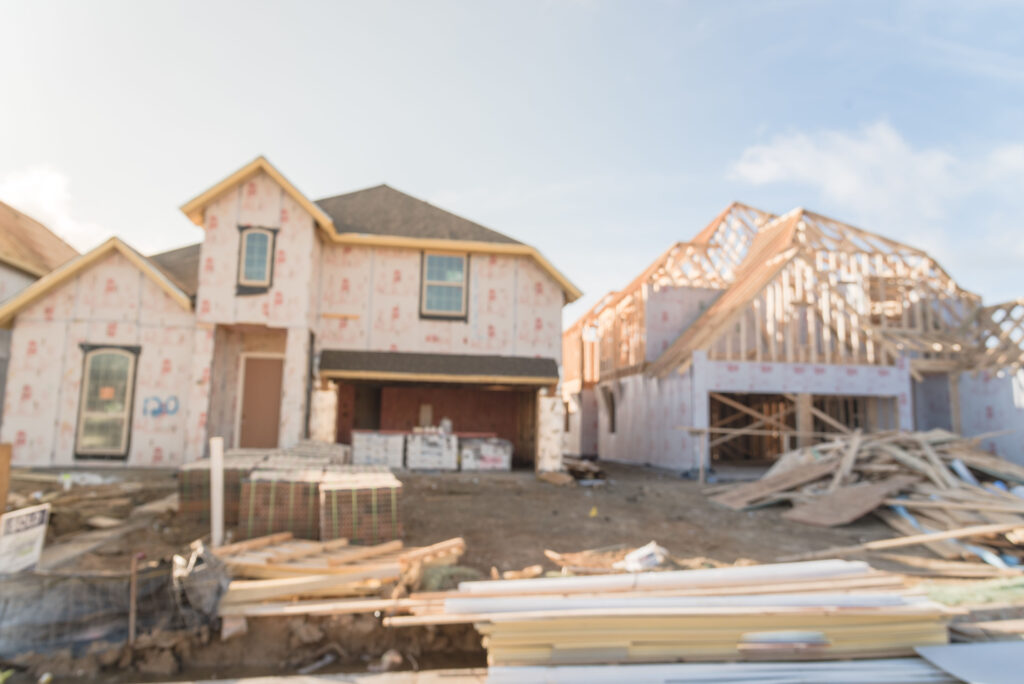
Millennials want houses now!
But this is all small potatoes compared to the housing needs for millennials.
They were one of the biggest reasons new construction homes weren’t built from 2012 through 2022…
A survey of millennials in 2017 showed that nearly half of them preferred to rent cheaply and spend their money on travel, rather than saving for a home. And so the demand on builders was for more multi-family, which is preferred by renters which was what was built.
But now millennials are the largest generation at 72 million strong and they’re starting to buy, creating a huge demand for single family homes.
33% of millennials are currently saving to buy a home. That’s about 24 million people. And just to put that into perspective, over the last 10 years or so, we sold about 5 million homes per year in the US.
So if we combine the 24 million millennials and the 5 million boomers who need homes to be built that currently don’t exist, that means we need 740,000 new homes to be built per year.
(Not including Gen X because nobody has ever cared about them. We don’t need houses.)
But there’s another piece of the housing market inventory…. investors that have jumped back into the housing market in May 2023, buying up these single family homes. But I think that’s a whole different post.
If you liked this post, you might also like this one about North Carolina housing markets that are getting ready to crash. Or maybe not…

